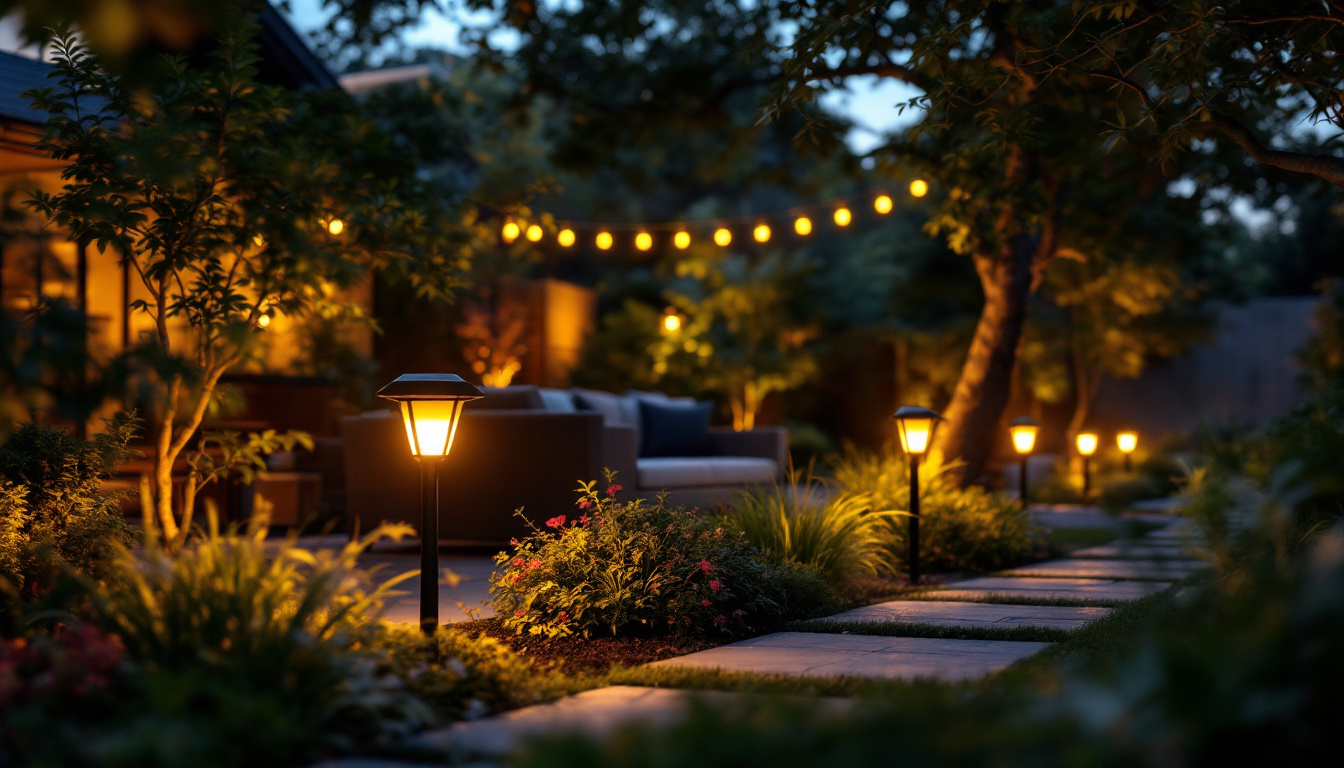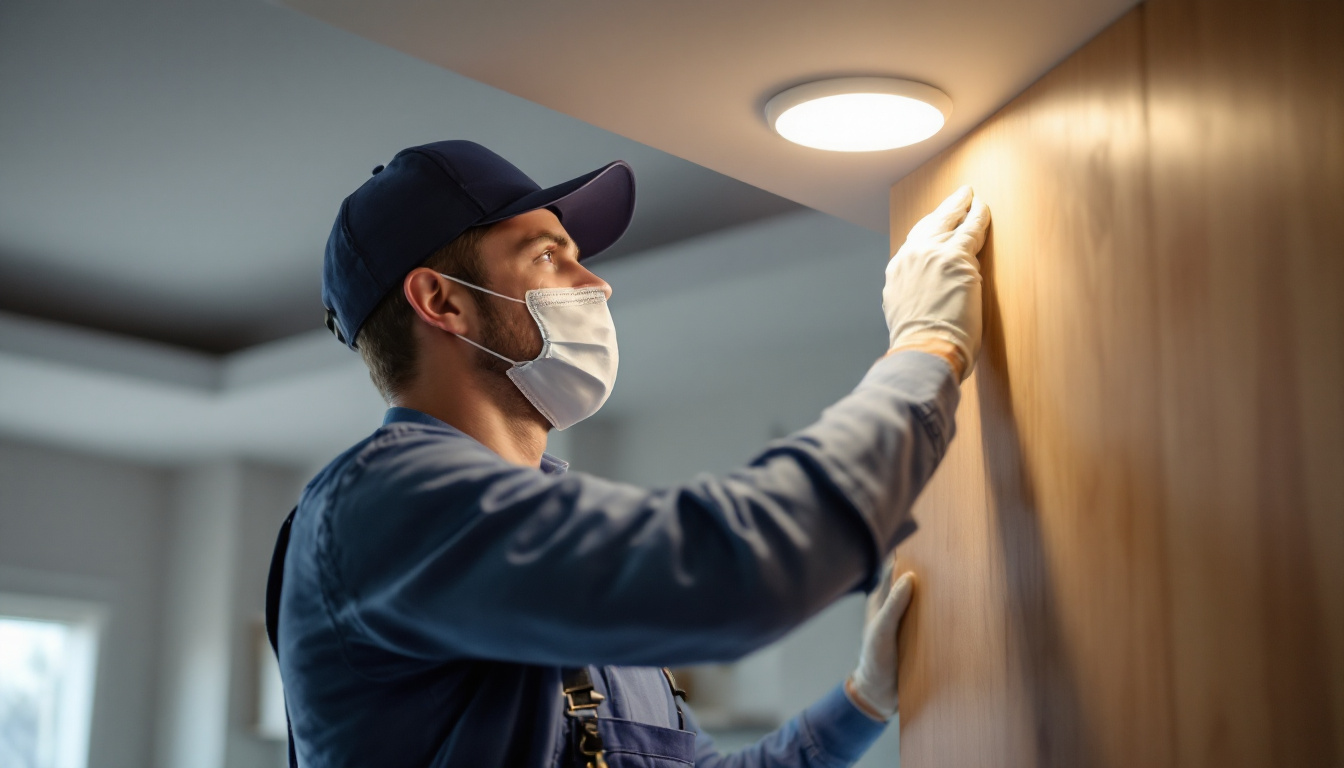

As the demand for sustainable energy solutions continues to rise, solar outdoor home lighting has emerged as a popular choice among homeowners and contractors alike. This shift not only reflects a growing awareness of environmental issues but also highlights the advantages of solar technology in enhancing outdoor spaces. For lighting contractors, understanding the essentials of solar outdoor lighting is crucial for meeting client needs and staying competitive in the market.
Solar outdoor lighting systems harness energy from the sun to illuminate outdoor spaces. These systems typically consist of solar panels, LED lights, batteries, and control systems. By converting sunlight into electricity, solar lights offer a sustainable and cost-effective solution for various outdoor applications, including pathways, gardens, and security lighting.
To effectively design and install solar outdoor lighting, it is essential to understand the key components involved. Each element plays a vital role in ensuring the system operates efficiently and meets the desired lighting requirements.
Solar outdoor lighting offers numerous advantages that make it an attractive option for both contractors and homeowners. Understanding these benefits can help contractors effectively communicate the value of solar solutions to their clients.
In addition to these benefits, solar outdoor lighting systems can enhance the aesthetic appeal of outdoor spaces. With a variety of designs and styles available, homeowners can choose fixtures that complement their landscaping and architecture. From sleek modern designs to charming vintage lanterns, solar lights can create a welcoming ambiance that transforms gardens and pathways into enchanting nighttime retreats.
Moreover, solar outdoor lighting contributes to safety and security in residential areas. Well-lit outdoor spaces deter potential intruders and provide a sense of safety for residents and visitors alike. By strategically placing solar lights along driveways, entrances, and dark corners of the yard, homeowners can enhance visibility and ensure that their properties are well-protected after sunset. This added layer of security is particularly appealing to families and individuals who prioritize safety in their living environments.
When working with solar outdoor lighting, there are several critical factors that lighting contractors must consider to ensure successful installations. These considerations can impact both the performance of the lighting systems and the satisfaction of the clients.
A thorough site assessment is essential before installing solar outdoor lighting. Contractors should evaluate the following:
In addition to these factors, contractors should also consider seasonal variations in sunlight exposure. For instance, areas that receive full sun in summer may face challenges in winter due to shorter days and potential snow cover. Understanding these seasonal dynamics can help in selecting the right type of solar lighting that remains effective throughout the year. Furthermore, it’s beneficial to engage with clients during this assessment phase to discuss their specific needs and preferences, which can lead to more tailored solutions.
Selecting the appropriate solar outdoor lighting products is crucial for meeting client expectations and ensuring system reliability. Factors to consider include:
Moreover, contractors should stay informed about the latest advancements in solar technology, such as smart solar lighting systems that offer features like motion sensors and remote control capabilities. These innovations not only enhance the functionality of outdoor lighting but can also significantly improve energy efficiency. Additionally, contractors should be aware of the various styles and finishes available in solar lighting products, as these can greatly influence the overall appeal and integration of the lighting into the landscape design. By carefully considering both functionality and aesthetics, contractors can provide solutions that not only meet practical requirements but also enhance the beauty of outdoor spaces.
Proper installation is key to maximizing the performance and longevity of solar outdoor lighting systems. Contractors should follow best practices to ensure successful outcomes.
The positioning of solar panels is critical to their effectiveness. Here are some guidelines to follow:
Even though solar lighting systems are generally low-voltage, electrical safety should always be a priority. Key considerations include:
Regular maintenance is essential to keep solar outdoor lighting systems functioning optimally. Contractors should educate clients on basic maintenance tasks and troubleshooting techniques.
Simple maintenance tasks can significantly extend the life of solar lighting systems. These include:
Contractors should be prepared to help clients troubleshoot common solar lighting issues. Common problems and solutions include:
The solar outdoor lighting industry is continually evolving, with new technologies and trends emerging that can enhance system performance and user experience. Contractors should stay informed about these trends to remain competitive.
As technology advances, smart solar lighting solutions are becoming increasingly popular. These systems offer features such as:
Advancements in battery technology are also influencing the solar lighting market. Newer battery types offer:
Solar outdoor home lighting presents an exciting opportunity for lighting contractors to offer sustainable and cost-effective solutions to their clients. By understanding the essential components, benefits, installation practices, and future trends, contractors can position themselves as knowledgeable professionals in this growing market. As more homeowners seek eco-friendly options, the demand for solar outdoor lighting will only continue to rise, making it imperative for contractors to stay informed and prepared.
With the right approach, lighting contractors can not only meet the lighting needs of their clients but also contribute to a greener future through the adoption of solar technology. Embracing solar outdoor lighting is not just a business opportunity; it’s a step towards a more sustainable way of living.
Ready to elevate your solar outdoor home lighting installations? LumenWholesale is here to support your journey towards sustainable excellence. Our commitment to providing contractors with high-quality, specification-grade lighting products at unbeatable wholesale prices ensures that your projects shine without straining your budget. With our extensive selection that meets the highest industry standards, you can trust in the reliability and performance of every fixture you install. Plus, with the convenience of free shipping on bulk orders, you can enjoy premium lighting solutions at the best value — all without hidden fees or compromises. Take the next step in offering eco-friendly, cost-effective lighting solutions and experience the best in wholesale lighting with LumenWholesale.

Discover the cost-effective strategies and expert insights from smart lighting contractors on replacing solar panels in lanterns.

Discover effective strategies for lighting contractors to tackle common challenges with recessed LED downlights.

Discover how LED strip lights can revolutionize warehouse lighting with energy efficiency and cost savings.

Discover essential insights for lighting contractors in our comprehensive guide to landscape lighting.
Get notified when NEW deals are released.
Optimize your budget with wholesale discounts.
Only top-quality, specification-grade lighting products.
No additional costs at checkout - what you see is what you pay.
We understand the unique needs of contractors.